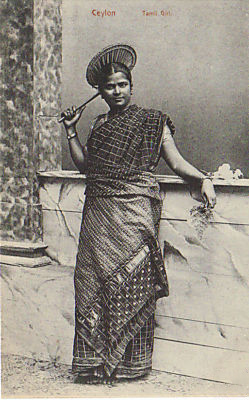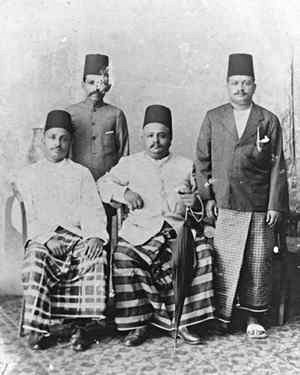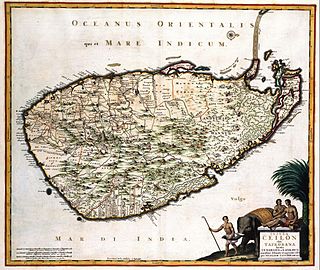Nur Yalman is a leading Turkish social anthropologist at Harvard University, where he serves as senior Research Professor of Social Anthropology and Middle Eastern Studies.
Nur Yalman is a leading Turkish social anthropologist at Harvard University, where he serves as senior Research Professor of Social Anthropology and Middle Eastern Studies.
Yalman received his high school diploma from Robert College, Istanbul, one of Turkey’s premier private high schools. For his BA and PhD, he studied Social Anthropology at Cambridge University under the mentorship of Edmund Leach and carried out fieldwork in Sri Lanka. At Cambridge, Yalman was a Bye-Fellow of Peterhouse, and subsequently joined the anthropology faculty at the University of Chicago. In 1960, during his time teaching at Middle East Technical University, Yalman also served as a Prime Ministry Special Advisor in the newly established State Planning Organization. [1] [2] [3] During his stay at Chicago, he served as director for the Center for Middle Eastern Studies from 1968-1972. He then joined the Harvard University faculty in 1972. Yalman is also a fellow of the American Academy of Arts and Sciences. He also served on the Social Sciences jury for the Infosys Prize in 2010.
Although his first book, Under the Bo Tree, was on Sri Lankan kinship and marriage, he has since expanded his research to include religion and politics in Middle Eastern and Muslim cultures. Not only has he written about many countries of the world, he has also conducted ethnographic fieldwork in Sri Lanka, India, Iran and Turkey. Yalman’s varied research interests are expressed in the wide number of languages he speaks: Turkish, English, French, German, some Persian, Sinhalese, Italian and Arabic. He teaches courses on structuralist and post-structuralist theory and on issues of modernization and social change.

Thambiluvil is a coastal village situated in the Eastern Province of Sri Lanka. It is 78 kilometres (48 mi) south of Batticaloa, on the east coast of the island. Thambiluvil is known for its preservation of the Tamil culture, especially the traditions of the ancient Mattakkalappu Desam. It is also known for Periya Kalappu, an area that has a lagoon and rice paddys.
Arthur Maurice Hocart was an anthropologist best known for his eccentric and often far-seeing works on Polynesia, Melanesia, and Sri Lanka.

Indian Tamils of Sri Lanka are Tamil people of Indian origin in Sri Lanka. They are also known as Malayaga Tamilar, Hill Country Tamils, Up-Country Tamils or simply Indian Tamils. They predominantly descend from workers sent during the British Raj from Southern India to Sri Lanka in the 19th and 20th centuries to work in coffee, tea and rubber plantations. Some also migrated on their own as merchants and as other service providers. These Tamil speakers mostly live in the central highlands, also known as the Malayakam or Hill Country, yet others are also found in major urban areas and in the Northern Province. Although they are all termed as Tamils today, some have Telugu and Malayalee origins as well as diverse South Indian caste origins. They are instrumental in the plantation sector economy of Sri Lanka. In general, socio-economically their standard of living is below that of the national average and they are described as one of the poorest and most neglected groups in Sri Lanka. In 1964 a large percentage were repatriated to India, but left a considerable number as stateless people. By the 1990s most of these had been given Sri Lankan citizenship. Most are Hindus with a minority of Christians and Muslims amongst them. There are also a small minority followers of Buddhism among them. Politically they are supportive of trade union-based political parties that have supported most of the ruling coalitions since the 1980s.
The caste systems in Sri Lanka are social stratification systems found among the ethnic groups of the island since ancient times. The models are similar to those found in Continental India, but are less extensive and important for various reasons. Modern times Sri Lanka is often considered to be a casteless society in south asia.

Sri Lankan Tamils, also known as Ceylon Tamils or Eelam Tamils, are Tamils native to the South Asian island state of Sri Lanka. Today, they constitute a majority in the Northern Province, form the plurality in the Eastern Province and are in the minority throughout the rest of the country. 70% of Sri Lankan Tamils in Sri Lanka live in the Northern and Eastern provinces.
Sri Lankan Mukkuvar is a Tamil speaking ethnic group found in the Western and Eastern coastal regions of Sri Lanka. They are primarily concentrated in the districts of Puttalam, Batticaloa, and Amparai.
Kalinga Magha or Gangaraja Kalinga Vijayabahu was an invader from the Kingdom of Kalinga who usurped the throne from Parakrama Pandyan II of Polonnaruwa in 1215. A massive migration followed of Sinhalese people to the south and west of Sri Lanka, and into the mountainous interior, as they attempted to escape his power. Magha was the last ruler to have his seat in the traditional northern seat of native power on the island, known as Rajarata; so comprehensive was his destruction of Sinhalese power in the north that all of the successor kingdoms to Rajarata existed primarily in the south of the island.
Koviyar is a Tamil caste found in Sri Lanka. They are traditional agriculturalists and temple workers but also included merchants, landowners and temple patrons. Kattavarayan as caste deity is observed by the Koviar. They are reputed as a ritually dominant caste and regarded as the "cousin" caste of the more numerical dominant caste, Sri Lankan Vellalar.
Karaiyar is a Sri Lankan Tamil caste found mainly on the northern and eastern coastal areas of Sri Lanka, and globally among the Tamil diaspora.

Karava is a Sinhalese speaking ethnic group of Sri Lanka, whose ancestors migrated throughout history from the Coromandel coast, claiming lineage to the Kaurava royalty of the old Kingdom of Kuru in Northern India. The Tamil equivalent is Karaiyar. Both groups are also known as the Kurukula.

Sri Lankan Moors are an ethnic minority group in Sri Lanka, comprising 9.3% of the country's total population. Most of them are native speakers of the Tamil language. The majority of Moors who are not native to Sri Lanka's Northern and Eastern provinces also speak Sinhalese as a second language. They are predominantly followers of Islam. The Sri Lankan Muslim community is mostly divided between Sri Lankan Moors, Indian Moors, Sri Lankan Malays and Sri Lankan Bohras. These groups are differentiated by lineage, language, history, culture and traditions.
Sir Edmund Ronald Leach FRAI FBA was a British social anthropologist and academic. He served as provost of King's College, Cambridge from 1966 to 1979. He was also president of the Royal Anthropological Institute from 1971 to 1975.
Govigama is a Sinhalese caste found in Sri Lanka. They form approximately half of the Sinhalese population and are traditionally involved in agriculture. The term Govigama became popular during the last period of the Sinhalese Kingdom of Kandy. Its members have dominated and influenced national politics and Sinhalese Buddhism.

British Ceylon, officially British Settlements and Territories in the Island of Ceylon with its Dependencies from 1802 to 1833, then the Island of Ceylon and its Territories and Dependencies from 1833 to 1931 and finally the Island of Ceylon and its Dependencies from 1931 to 1948, was the British Crown colony of present-day Sri Lanka between 1796 and 4 February 1948. Initially, the area it covered did not include the Kingdom of Kandy, which was a protectorate, but from 1817 to 1948 the British possessions included the whole island of Ceylon, now the nation of Sri Lanka.

The Vanni chieftaincies or Vanni tribes was a region between Anuradhapura and Jaffna, but also extending to along the eastern coast to Panama and Yala, during the Transitional and Kandyan periods of Sri Lanka. The heavily forested land was a collection of chieftaincies of principalities that were a collective buffer zone between the Jaffna Kingdom, in the north of Sri Lanka, and the Sinhalese kingdoms in the south. Traditionally the forest regions were ruled by Vedda rulers. Later on, the emergence of these chieftaincies was a direct result of the breakdown of central authority and the collapse of the Kingdom of Polonnaruwa in the 13th century, as well as the establishment of the Jaffna Kingdom in the Jaffna Peninsula. Control of this area was taken over by dispossessed Sinhalese nobles and chiefs of the South Indian military of Māgha of Kalinga (1215–1236), whose 1215 invasion of Polonnaruwa led to the kingdom's downfall. Sinhalese chieftaincies would lay on the northern border of the Sinhalese kingdom while the Tamil chieftaincies would border the Jaffna Kingdom and the remoter areas of the eastern coast, north western coast outside of the control of either kingdom.
Sri Lankan Tamil nationalism is the conviction of the Sri Lankan Tamil people, a minority ethnic group in the South Asian island country of Sri Lanka, that they have the right to constitute an independent or autonomous political community. This idea has not always existed. Sri Lankan Tamil national awareness began during the era of British rule during the nineteenth century, as Tamil Hindu revivalists tried to counter Protestant missionary activity. The revivalists, led by Arumuga Navalar, used literacy as a tool to spread Hinduism and its principles.
Social class in Sri Lanka is often described as casteless, though caste is still found on the island in both a symbolic and a practical sense. Caste is also used in an analogous sense to refer to the new social class divisions that have appeared in recent decades. The combination of ethnic nationalist movements that saw caste as an island-wide dividing tool, strong emphasis on providing access to education and healthcare regardless of background, and historic lack of discrimination among the colonial civil service played a factor in eradicating the caste system in most sectors of the island's society. Although the Buddhist culture actively fought against all forms of class discrimination, many Buddhist organizations used caste as a method to extract surplus from temple property.
Although Sri Lankan Tamils are culturally and linguistically distinct, genetic studies indicate that they are closely related to other ethnic groups in the island while being related to the Indian Tamils from South India and Bengalis from the East India as well. There are various studies that indicate varying degrees of connections between Sri Lankan Tamils, Sinhalese and Indian ethnic groups.

A Korale or Corale was formerly a revenue district in Ceylon. During the British colonial administration, a low country korale was under the purview of a Mudaliyar while an upcountry korale came under the purview of a post that was itself known as Korale or Korale Mahaththaya. To this day localities retain their old names and most land titles retain reference to the Korale the land is located in.
Giridhari (Giri) Lal Tikku was a Kashmiri linguist and literary scholar and Professor of Persian and Asian Studies at the University of Illinois. He was known for his works on Persian literature.